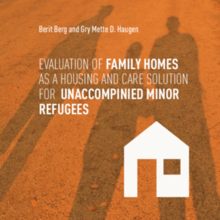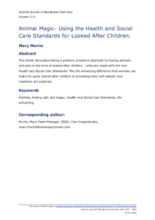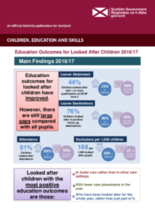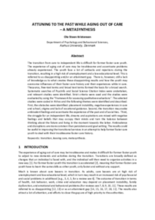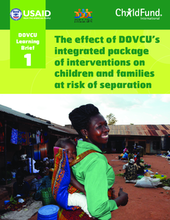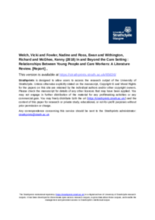Displaying 1391 - 1400 of 2221
This report presents an evaluation of the family home model as part of the 'Our New Children' project in Norway, a collaborative project between SOS Children’s Villages, Asker Municipality and the Housing bank that seeks to "assess the establishment of family homes as the housing and care solution for single minor refugees."
This article celebrates the positive difference that being around and caring for animals can make for looked after children. It explores the benefits and makes a case for a proactive approach.
In order to define what support is necessary for the successful emancipation of young people leaving alternative care in Serbia, this study of 150 young people in care aims to analyse both their preparedness for leaving alternative care, and whether the type of placement (kinship, foster, or residential) makes a difference to the level of preparedness.
This publication from the Scottish government examines 2016/17 data on looked after children’s attainment, post-school destinations, school attendance, school exclusions and achievement of curriculum for excellence attainment levels.
This video from Rise Magazine is designed to include in training for caseworkers, visit coaches, parent advocates and other frontline staff who will supervise or support parents during visits with children in foster care.
This systematic review sought to address the lack of knowledge as to what creates setbacks and rejections during young people's transition out of care and how the youth may overcome influences of their foster care history and their experiences while in care.
This resource from the U.S. National Child Traumatic Stress Network provides tips for current caregivers and others to help address the needs of immigrant and refugee children who have experienced traumatic separation.
This learning brief analyzes quantitative data from the first of the project’s stated objectives: examining the extent to which “Deinstitutionalization of Orphans and Vulnerable Children in Uganda” (DOVCU) project interventions decrease vulnerabilities for households and children at risk of separation.
This report looks at the nature and extent of the income and housing challenges faced by Tasmanian families who have had children removed by Child Safety Services, and the impacts those challenges may have on positive family reunification outcomes.
This review seeks to identify and summarise findings from literature about the nature of relationships that develop between older children and young people, and those caring for them within and beyond residential and fostering settings.

